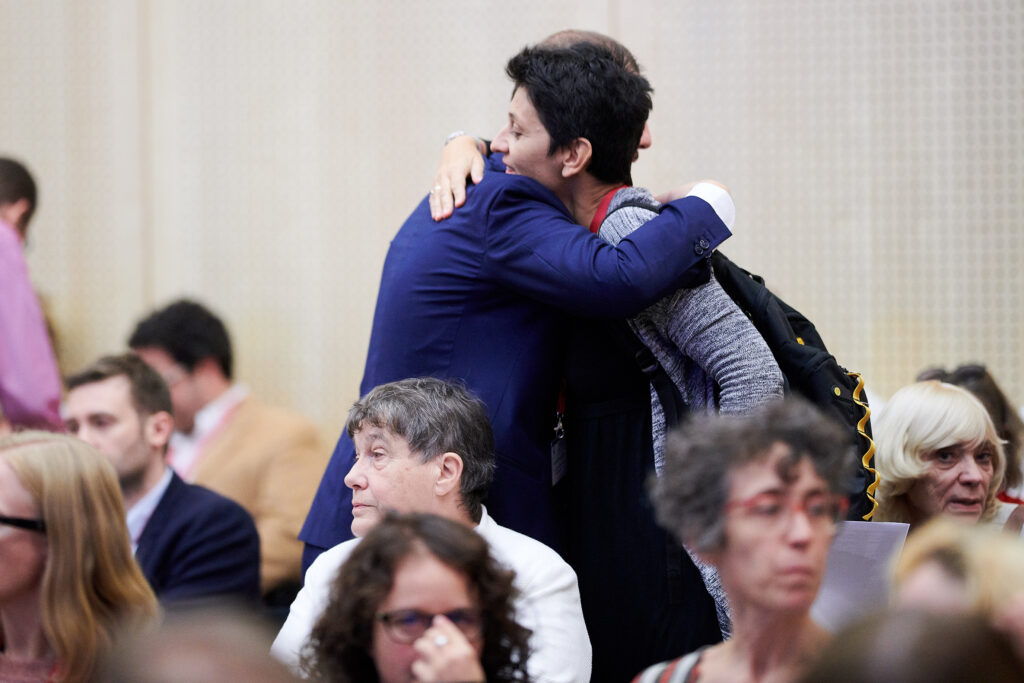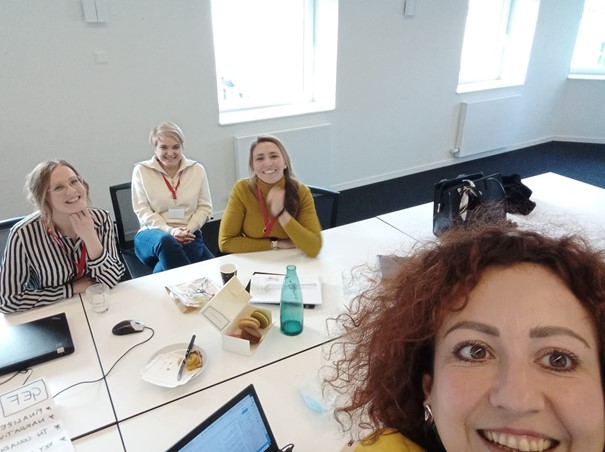Thematic Networks: reshaping ambitions, rethinking collaboration

Foundations always had numerous opportunities to come together at the EFC, one of the most important being via the Thematic Networks. Together with the Communities of Practice and the peer-learning programmes, the Thematic Networks have long been the beating heart of the organisation and will continue to be so within Philea.
Driven by the members, for the members, each network has its own raison d’être, history, collaboration practices, knowledge repositories and relationships. The 11 Thematic Networks respond to the common need to build safe spaces for foundations to collaborate, learn and exchange on topics of shared interest: while they follow similar governance dynamics, they differ in their scope, structure, and activities. Some (such as the Grantmakers East Forum) will celebrate 25 years in 2022, others (such as the Children & Youth) emerged just before the pandemic. Collaboration and networking also comes in many forms: the Research Forum has consolidated in time a biannual conference for representatives of European research funding foundations (which this year will be hosted in Lisbon by the Calouste Gulbenkian Foundation on 21-22 April), while the Funders’ Forum on Sustainable Cities organises regular site visits in Flint (U.S.) to examine opportunities for philanthropic engagement in urban agendas.
Some of these networks have contributed to providing the sector with valuable data and building the EFC’s knowledge base on European philanthropy with a number of publications, such as the mapping on Environmental Funding by European Foundations or the first attempt to map out the panorama of institutional philanthropy in Europe in the area of arts and culture. Others have consistently strived to mainstream disability or promote the use of a gender lens throughout the work of foundations by identifying and disseminating the most promising practices and bringing these to the attention of the philanthropic community by organising stimulating panels at the EFC Conference (now Philea Conference).
Their diversity has not spared them from being deeply impacted by the outbreak of the global pandemic, as safety measures and travel restrictions put a drastic stop to the ways foundations were carrying out their networking practices. The long tail of the pandemic has led us to question our meeting habits and weigh up the impact of our traveling choices: for those in charge of designing in-person collaboration activities, life suddenly became a lot tougher.
Moreover, the horizons of change did not end with the pandemic: following a participatory process throughout 2021, the EFC and Donors and Foundations Network Europe (Dafne) launched the new converged organisation, Philea, on 7 December 2021. Philea – Philanthropy Europe Association was created against the backdrop of a polycrisis which deeply affected every part of our world and demanded new ways of working for philanthropy, including our Thematic Networks. By bringing together the 200+ foundation members of the EFC with the 30 National Associations representing 10,000 foundations around Europe, Philea aims to create a stronger and more inclusive voice for the sector and strengthen its ability to do good. But what does this mean for the Thematic Networks?
As Thematic Network coordinators responsible for facilitating collaboration and networking amongst foundations, we were determined not to pass up the opportunities offered by these changing horizons. We came together at Philanthropy House on 2 February for a deep-dive strategy session to jointly reflect on how the Thematic Networks can benefit from the convergence opportunities in 2022, a transition year for Philea.
We screened the 11 Thematic Networks transversally, looking into their objectives, needs and challenges. We discussed the networks’ levels of ambition and how to best equip these. We mapped out the current available resources and sketched several scenarios which would allow us to respond to the different appetites at stake: some steering groups wish to renew their internal strategy, others would like to be more strategic about their collaboration with the EU and other multilateral institutions, while others have yet to understand how to make the most out of the opportunities which will emerge as Philea becomes a recognised entity within and beyond the sector.
As Thematic Network coordinators, we are determined to make sure that we build ownership of the transition process and will do so by presenting the 6 activity clusters through which Philea will support its members and European philanthropy in general. We will drive annual work plans that foster collaboration between the Thematic Networks and Philea’s three overarching topics – climate, equality and democracy – rather than working in silos. We will also
- Strive to shift the annual work plans of the Thematic Networks from an outcome-based approach to an impact-based one, reflecting quality rather than quantity
- Work closely together with other colleagues within Philea working on storytelling and knowledge management to increase the visibility of our activities and make sure that the quality content produced can benefit the sector
- Respond to the appetite for issue-based advocacy, where relevant, connecting the dots with different thematic conversations taking place across the organisation
Change will not happen overnight and will require patience and understanding from all sides. It might mean reshaping ambitions, rethinking frames for collaboration and questioning the status quo. We will take the time to work with you in 2022, to define how the Thematic Networks can embrace transformation and have designed a proper format for the Chairs and co-Chairs of the networks to improve mutual understanding and increase collaboration opportunities.
To be continued…

Authors

